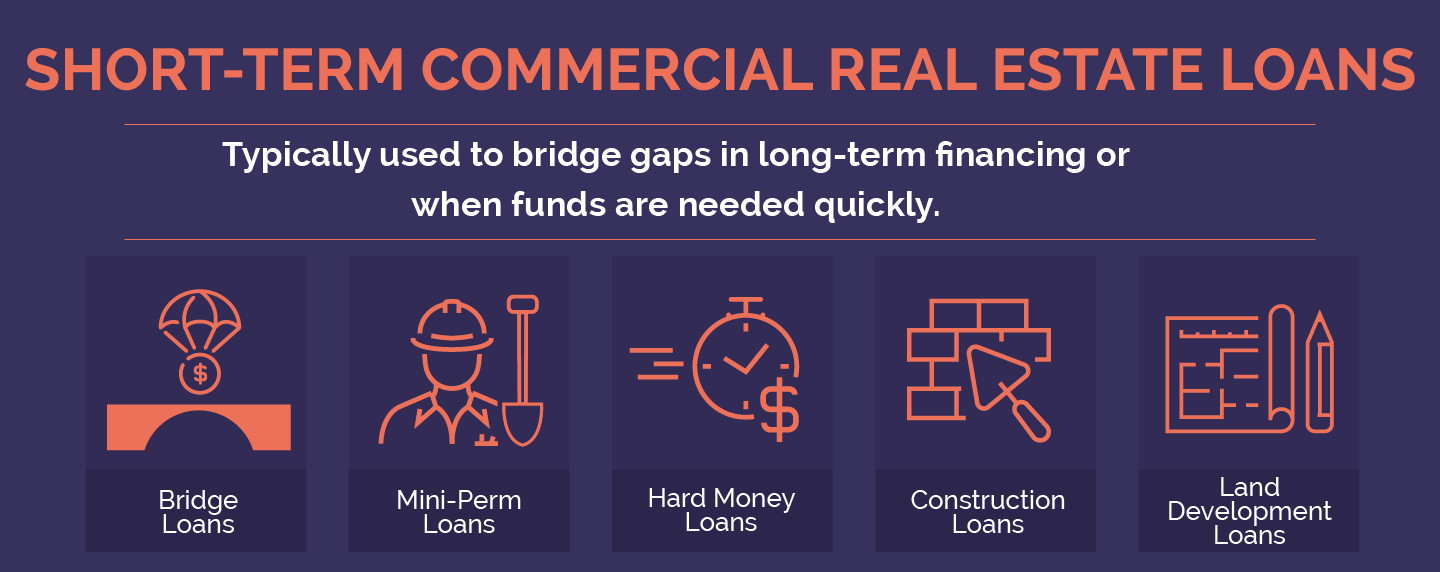What You Need to Know About Commercial Real Estate Loans

Share this article:
Editor’s note: Lantern by SoFi seeks to provide content that is objective, independent and accurate. Writers are separate from our business operation and do not receive direct compensation from advertisers or partners. Read more about our Editorial Guidelines and How We Make Money.
Commercial Real Estate Loans Pros and Cons
How Do Commercial Real Estate Loans Work?
S- and C-Corporations Funds Trusts Limited partnership Limited liability company (LLC)
Collateral and Loan Guarantees
Eligibility Requirements
The business must occupy at least 51% of the building being purchased A minimum FICO SBSS score of 140 A debt service coverage ratio (DSCR) of 1 or higher (typically between 1.25 and 1.5). The DSCR helps lenders determine whether you’ll be able to pay back your loan with the revenue made by your business. It’s calculated by dividing net operating income by total annual debt. If your DSCR is lower than 1, it’s an indication that your business income will not be sufficient to cover the cost of the loan. A strong personal credit history free of incidents like loan defaults, foreclosures, and tax liens. The property type must be commercial (not a single-family residence). Commercial properties may include: Retail storefronts Warehouses Labs Office space Land for commercial development
Types of Commercial Real Estate Loans
Long-term commercial real estate loans
Short-term commercial real estate loans
Long-Term Commercial Real Estate Loans

Commercial Mortgage
SBA 7(a) CRE Loans
SBA 504 CRE Loans
Short-term Commercial Real Estate Loans

Bridge Loans
Construction Loans
Land Development Loans
Mini-Perm Loans
Hard Money Loans
Commercial Real Estate Loan Amounts, Rates, Fees, and Terms
CRE Loan Amounts
Type of commercial real estate loan Type of lender Credit rating Loan-to-value (LTV) ratio Down payment amount If the property is owner-occupied
CRE Interest Rates and Fees
Origination fees Application fees Closing costs Appraisal fees Prepayment penalties, if applicable
CRE Loan Terms
Applying for a Commercial Real Estate Loan
1. Determine what the loan is for
Is the loan for renovations? Are you planning to build a new structure? If you’re making a purchase, what type of property are you purchasing: land for development, retail space, offices, storage? Do you need to pay for labor and materials? What is your budget? Do you have other sources of funding?
2. Choose the type of commercial real estate loan
Construction loans Commercial mortgage loans Land development loans Refinance loans Hard money loans SBA loans
3. Assess your qualifications
Strong personal and business credit scores A debt service coverage ratio (DSCR) of 1 or higher Down payment A loan-to-value ratio of 65% to 75% Healthy business revenue Approved property type for the type of loan you’re applying for
4. Find a lender
5. Prepare your loan application
Up to five years of tax returns Business financial records for up to five years or since your business was established Credit reports for business and all owners/partners Cash flow projections Business plan (to show the property’s intended use) Identifying information (which may include citizenship) Third-party property appraisal Legal documents
Alternatives to Commercial Real Estate Loans
Restaurant Loans
Franchise Financing
Merchant Cash Advance
Invoice Factoring
Business Line of Credit
Personal Loans
Lantern Is Here to Help With Commercial Loans
LCSB0523019U
About the Author
Nancy Bilyeau writes about student loans, mortgages, car insurance, medical debt and many other finance topics for Lantern. A veteran of the magazine business, she has edited stories on personal finance for Good Housekeeping and DuJour magazines and has written articles for The Wall Street Journal, Readers' Digest, Parade, Town & Country and Lifetime/A&E, among others. She is a graduate of the University of Michigan.
Share this article: